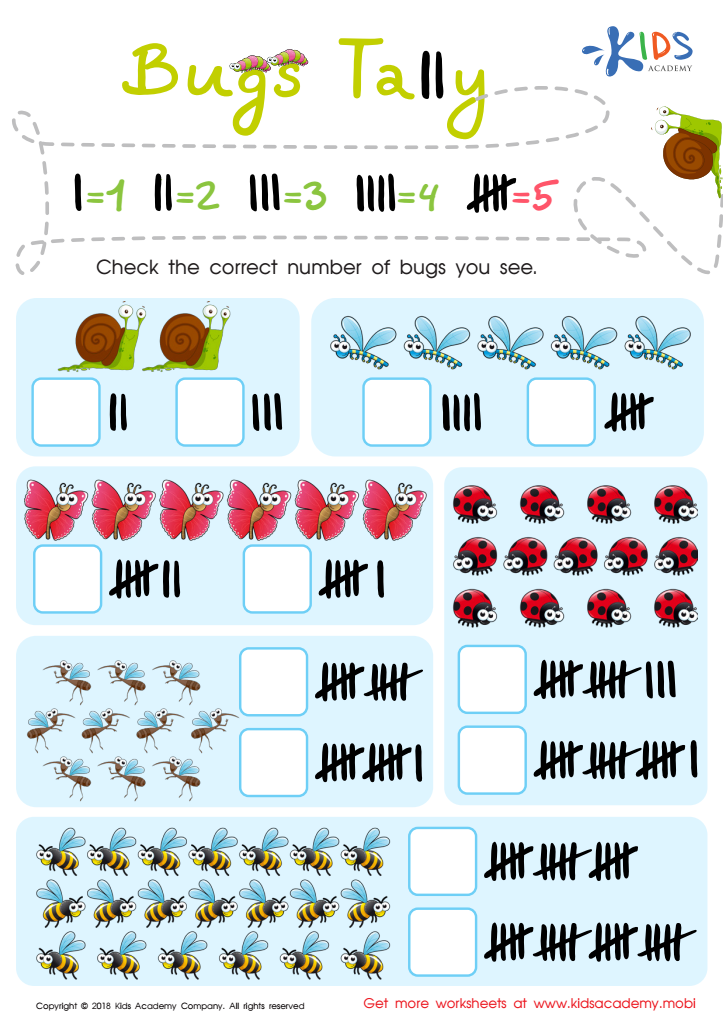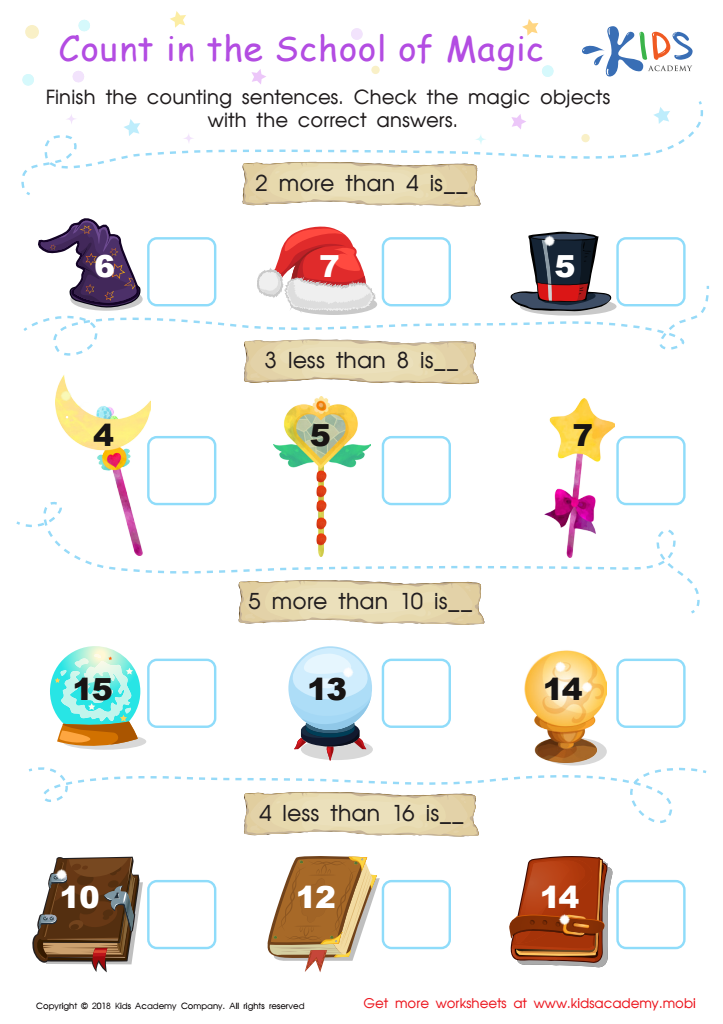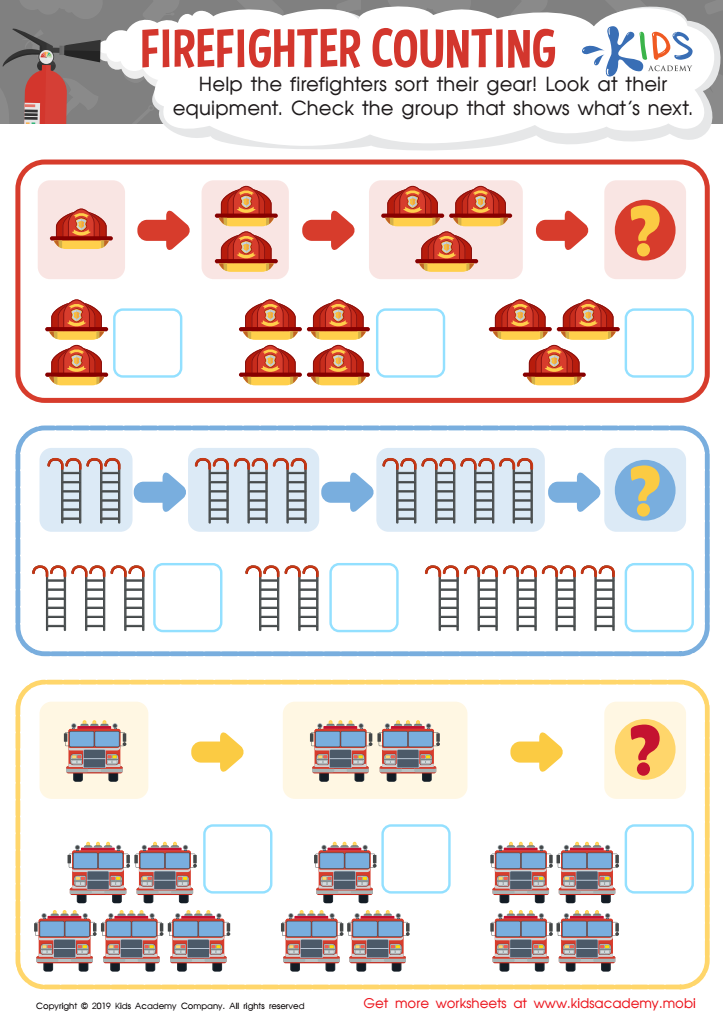Observational skills Easy Math Worksheets for Ages 3-6
3 filtered results
-
From - To
Enhance your child's observational skills with our Easy Math Worksheets, designed specifically for ages 3-6! These engaging printables focus on developing essential skills through fun and interactive math activities. Children will practice recognizing patterns, shapes, and sizes while building a strong foundation for future learning. Each worksheet is tailored to captivate young minds, fostering excitement for math through colorful illustrations and relatable themes. Perfect for at-home learning or in the classroom, our worksheets encourage critical thinking and boost confidence in math. Give your child the tools they need to succeed—explore our collection of observational skills worksheets today!


Bugs Tally Worksheet


Count in the School of Magic Worksheet


Firefighter Counting Worksheet
Parents and teachers should prioritize observational skills in early math education for children aged 3-6 because these skills lay the foundation for essential cognitive development. Observational skills allow young learners to notice patterns, understand relationships, and make sense of their surroundings. These abilities are crucial for grasping mathematical concepts such as counting, sorting, and spatial reasoning.
By fostering observational skills, educators and parents help children develop critical thinking and problem-solving abilities. For instance, children who can observe and compare sizes or shapes not only engage with mathematics in their daily lives but also enhance their communication skills by articulating their findings. Furthermore, interactive and engaging math activities can spark curiosity, leading to a more profound love for learning and exploration.
Incorporating awareness into math learning encourages children to actively participate and take ownership of their knowledge. When adults model observational techniques, they create an enriching environment where young learners feel supported as they explore mathematical ideas. Ultimately, enhancing observational skills equips children with the tools they need to navigate future educational experiences and prepares them for more complex mathematical concepts as they grow. Investing time in this foundational skill can significantly influence a child's confidence and interest in mathematics throughout their academic journey.
 Assign to My Students
Assign to My Students





















